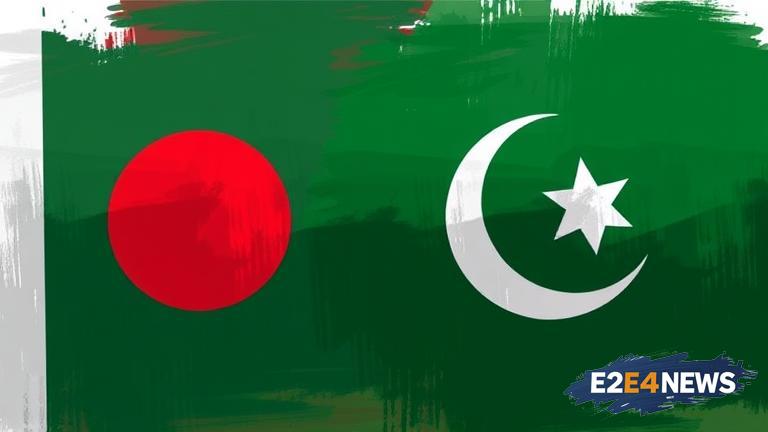The 1971 Bangladesh Liberation War was a pivotal event in the history of Bangladesh and Pakistan, with far-reaching consequences that still affect their relations today. The war was sparked by the Pakistani military’s crackdown on Bengali nationalists in East Pakistan, which led to a massive refugee crisis and international intervention. India played a key role in the war, providing military support to the Mukti Bahini, the Bengali nationalist forces. The war ultimately resulted in the independence of Bangladesh from Pakistan. However, the legacy of the war continues to cast a shadow over relations between the two countries. One of the main issues is the question of war crimes and accountability. Many Bangladeshis feel that Pakistan has not done enough to acknowledge and atone for its role in the war, particularly with regards to the atrocities committed by the Pakistani military. Pakistan, on the other hand, has long maintained that it has done enough to make amends. Another issue is the matter of reparations and compensation for the victims of the war. Bangladesh has long demanded that Pakistan provide reparations for the damage and loss of life caused during the war. Pakistan has so far refused to comply, citing a 1974 agreement between the two countries that it claims settled the matter. The issue of trade and economic cooperation is also a point of contention. Bangladesh has long been critical of Pakistan’s trade policies, which it claims are unfair and discriminatory. Pakistan, on the other hand, has accused Bangladesh of not doing enough to promote trade and investment between the two countries. Despite these challenges, there have been efforts in recent years to improve relations between Bangladesh and Pakistan. In 2019, the two countries agreed to establish a joint commission to promote trade and economic cooperation. However, progress has been slow, and many of the underlying issues remain unresolved. The role of India is also a factor in Bangladesh-Pakistan relations. India’s support for the Mukti Bahini during the war created tensions with Pakistan, which have never fully dissipated. Today, India remains a key player in the region, and its relations with both Bangladesh and Pakistan are complex and multifaceted. In recent years, there have been efforts to promote people-to-people diplomacy and cultural exchange between Bangladesh and Pakistan. However, these efforts have been hindered by the lingering tensions and unresolved issues between the two countries. The 1971 war also had a profound impact on the region as a whole. It led to a significant shift in the balance of power in South Asia, with India emerging as a dominant player. The war also had far-reaching consequences for the global community, particularly with regards to international law and human rights. In the years since the war, there have been numerous attempts to promote reconciliation and healing between Bangladesh and Pakistan. However, these efforts have been hindered by the lack of progress on key issues such as war crimes and reparations. Despite these challenges, there is still hope for improved relations between Bangladesh and Pakistan. With efforts to promote trade and economic cooperation, people-to-people diplomacy, and cultural exchange, it is possible to build a more positive and constructive relationship between the two countries. However, this will require a willingness to confront the past and address the lingering issues that continue to cast a shadow over their relations. The international community also has a role to play in promoting reconciliation and healing between Bangladesh and Pakistan. By providing support and encouragement for efforts to promote trade and economic cooperation, people-to-people diplomacy, and cultural exchange, the international community can help to build a more positive and constructive relationship between the two countries. Ultimately, the key to improved relations between Bangladesh and Pakistan lies in their ability to confront the past and address the lingering issues that continue to cast a shadow over their relations. By doing so, they can build a more positive and constructive relationship that benefits both countries and promotes peace and stability in the region.
